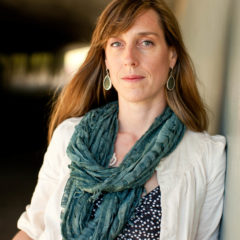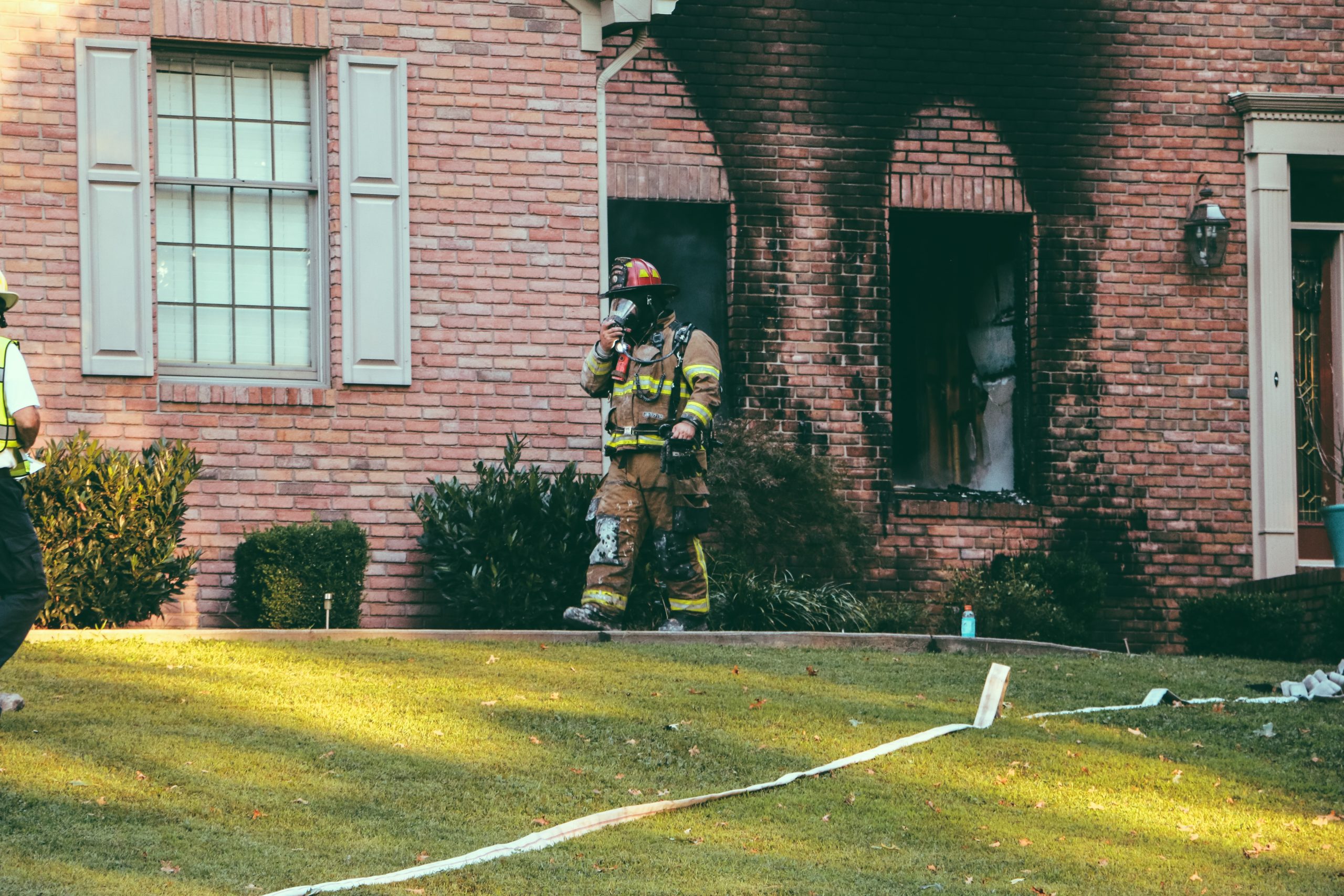19
Jul 2023
The Other Side of the Fire
Samantha Grant
September 23, 2016 started out much the same as most Fridays in our house. JJ, my husband, got our two girls (then ages 5 and 8) out of bed early to take them to the nearby cafe for breakfast and a quick “homework check” before school. I was at home with our 10-month-old son preparing to head out to teach my regular 9:30 am Visual Storytelling class at UC Berkeley’s Graduate School of Journalism. I was dressed and ready, jacket and boots on, and was just leaning down to sneak one last bite of scrambled eggs into my son’s tiny mouth when a frantic knocking sounded at the front door.
I opened the door and standing there was a young man in construction boots and a tool belt, a day laborer presumably on his way to work on one of the dozens of remodeling projects happening in Bernal Heights, the San Francisco neighborhood where we live.
“Your house is on fire!! Get out!!” he said urgently, in Spanish.
“What?” I stuttered… I was so confused… there had been no smoke, no flames, no smoke detector siren… Nothing. What was this person talking about? Was he crazy? Was he real? An angel sent from beyond? A kind soul from another land who just happened to be in the right place at the right time?
Lucky for us, this young man was very real, and not at all crazy but rather just the kind of person who sees a crisis unfolding and takes immediate action. He did not see smoke and keep walking, assuming that someone else would take care of it. Instead, he ran up the stairs of my house and my neighbors’ houses and knocked hard until we answered to warn us of the danger we didn’t even know we were facing. He was someone I’d never met before, or seen since, but there’s no question that if he had not taken the time to alert us, this story might have had a much more dire ending.
As I stepped through the front door and out onto the landing, I turned back around to look up and, sure enough, there was a small plume of thick smoke pouring out of the corner of our house right where it butts up against our neighbor’s house. Many of the older homes in San Francisco are built this way – one right next to, even connected to, the next. A tinder box of 120-year-old homes connected by shared walls, built entirely of wood. If one catches fire, it’s a pretty nail-biting experience for everyone nearby. I ran back inside, grabbed the baby, the nanny, and the diaper bag, and we all rushed outside.
We immediately called the fire department, and despite the fact that nearly 70 heroic San Francisco firefighters were on the scene within minutes, we spent the next few hours standing on the sidewalk and watched as the fire moved quickly through the walls, destroying almost all our material possessions in a blink.
When you go through a public trauma, it feels like the world is watching to see how you’ll react. Will you break, will you rise up? Will you hold it all together or will you freak out? Will you rupture or will you shine? Everyone hopes that our best selves will emerge, but the truth is, until it happens, nobody really knows what’s going to happen – including you. So, I’m relieved to say that once I got over the shock, my first emotional response was gratitude.
In a Facebook post just hours after the fire I wrote, “Tonight I am grateful. So grateful. And I feel lucky. So lucky. That’s not what I would expect to be feeling after watching my home of the past 15 years, the home where all 3 of my kids were born, the home where JJ Wiesler and I have built our whole adult life together, go up in flames. But it’s amazing how quickly your priorities come clear when you are forced to choose, in a second, what is most important to you.”
As word of our fire got out to our community, one of the very first people to show up was our friend and rabbi Michael Lezak, who came to the house, collected us all in a big hug, and gave us a hands-on blessing. As we stood there, huddled together in our soot-covered clothing, still smelling of smoke, I suddenly and deeply knew that we were going to be okay. It was more than Michael’s reassuring presence. It was the dawning realization that none of our stuff really matters. Even without all our belongings, we still had one another, a temporary roof over our heads, a hot meal on our table, and a vast community standing by to help us if only they knew how. As Michael was leaving, he looked me in the eyes and whispered, “Don’t be afraid to ask for help.”
While asking for help is not technically a mitzvah, it is an essential part of helping others help you. Most people, in a crisis, want to help. The problem is that we sometimes just don’t know what to do. As one of “the helpers” myself, I am often the first person to drop a meal to new parents or offer a ride whenever anyone in our community is in need, but now that the tables were turned, it was my turn to exercise the gift of receiving for those who wanted to extend a helping hand.
Being in community with others is not just a “giving” act, because in order for there to be giving, someone needs to receive. No one ever wants to be the person who needs the help, but being willing to receive help is a very important role because it creates the space for others to give. Giving and receiving are just two sides of the same equation and being able to wear both hats is an important part of being in an engaged community. Having an engaged community, in turn, is what allows for both individual and communal resilience.
This month marks the solemn fast day Tisha B’Av, which falls on the 9th day of the month of Av, and is, according to the American Jewish World Service, “the saddest day on the Jewish calendar, when Jewish people mourn the destruction of the First and Second Temples in Jerusalem and the persecution suffered through two millennia of diaspora.” That is a lot of loss to commemorate.
That said, as we learned from our fire, it’s important to remember that loss is a part of every life, and learning how to accept and cope with loss, how to grieve and move through grief, integrate it, and dare I say even grow from it – that is the very essence of resilience. Even if you are a very prepared, very organized person, loss will find you, and it won’t be the loss you’re expecting. (Believe me, I was super prepared for an earthquake… until my earthquake kit burned down.)
When loss happens, we have a choice: we can open up and feel it, make ourselves vulnerable, ask for help, and have faith that everything will be okay. Or we can shut down, deny it, and act like everything’s fine, and shoulder on alone. But experience shows that if we do anything other than allow it in, face it, process it, and integrate it, the weight of our grief will eventually come out sideways, one way or another. With grief, there’s simply no way out but through.
Marking Tisha B’Av every year allows for a personal and communal recognition of the intense loss the Jewish people suffered when the temples were destroyed. The loss of both temples, the relentless persecutions that came afterwards, and even those that continue to this day – those losses are so profound that we’re reminded to set aside a day each year to recognize, sit with, absorb, and process the grief. And while we allow time each year to mark the loss, it’s also important to remember that out of that destruction, out of that grief, evolved rabbinic Judaism.
When it was clear that the challenge to the temples would be ongoing, the rabbis got together and decided to pivot.
“How about if we make this whole thing about the book instead of the building?” they asked one another. And we grew. We evolved. We moved past the challenge and into a future where Judaism could survive beyond the walls of the temples or the boundaries of any single place.
Our family marks our fire annually by delivering a meal to the firehouse where many of the firefighters that fought our fire were stationed. Most of them have moved on by now, but we take comfort in knowing that we now have the bandwidth to do at least this one small thing to help these people who spend every day helping so many others. In addition, in the year following our fire, my two young daughters asked me to help them start a project called The Fire Journal Project (www.thefirejournalproject.org) which is committed to delivering free journals to kids, families, and communities who’ve lost their homes to fire in an effort to help them integrate this traumatic experience of loss. Both of these projects are just small efforts we engage in to acknowledge, process, and ultimately transform our loss into something more lasting.
Looking back now, I can see that the destruction of our fire has really, in many important ways, brought our family much closer together. We were tested, and we survived. It’s been messy, and difficult, and we’ve all certainly shed a lot of tears, but now we know how strong we are. Now we know how much we love one another. Now we know we can keep one another safe even when it feels like the world is falling apart. Now we know our community will rush in to help us when we are in need. Now we know – and that alone is a huge comfort.
Being able to draw on stories of resilience – whether they are personal stories, family stories, tribal stories, or global stories – is an important part of recovering from any kind of major loss, and although I would never choose to go through something like this on purpose, I can say that I am grateful to have the chance to reflect deeply on what both my Jewish community and my broader community means for my life, and my family’s life, as we all keep moving forward, growing, and evolving.

Get to know the author
Samantha Grant is an award winning documentary film Director/Producer, journalist, and educator who tells thought-provoking, character-driven stories that seek to educate, entertain, and inspire global audiences. Through her company GUSHProductions, Sam has released films about everything from journalism scandals at the New York Times to Ebola epidemics in Sierra Leone, the black market trade in human kidneys in India, to polygamous cults in Utah. Her work has been featured on PBS, ABC, CNN, NPR, MTV, A&E, CBC, POV, PRI, FRONTLINE, and Al Jazeera International, among others.

